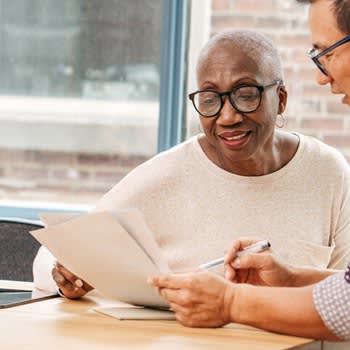What Should I Do if I Don't Get My Unemployment Benefits?
- If your benefits are late for any reason, you can call your unemployment office, contact your elected officials or connect with others on Facebook.
What Should I Do if I Don’t Get My Unemployment Benefits?
When the COVID-19 pandemic forced millions of Americans to collect unemployment, many states were overwhelmed. As a result, many who applied for unemployment received their benefits late or not at all.
According to a February 2021 article in Time magazine, more than 57 million people filed for unemployment benefits since the pandemic hit in March 2020. Though that number has gone down, it’s still well above the average number of pre-pandemic claims. And many people are still having a hard time collecting their benefits.
Each state handles unemployment differently. One thing they have in common: they are all tough to deal with and hard to reach for help. But there are strategies to follow if you do not receive your unemployment benefits on time.
How Benefits Are Paid
Most people now receive unemployment benefits through direct deposit into their bank account. US News & World Report says that this is the faster and easier way to get your money. But in some cases, these direct deposits are slow in coming for a variety of reasons, including the number of requests, reduced staff at unemployment and department of labor offices, technological glitches and old payment systems.
Some people still receive their unemployment benefits by check or – more often these days – a debit card through the U.S. mail. The payments are also sometimes delayed for many of the same reasons.
Reasons for Late Unemployment Payment
US News lists other reasons an unemployment payment might be late:
Forms filled out incorrectly. You must answer questions when you file for unemployment, usually online. Answering incorrectly can hold up the processing of your claim.
Incomplete documentation. If you don’t include, for example, your driver's license number or Social Security number, your claim can be delayed.
Backlog of applications. The current volume of unemployment claims has created a backlog of applications to process. Staffing issues add to the slowdown.
Older computer systems. Many states are still operating with older systems that were sufficient for typical unemployment claims but unable to handle the volume and complexity of claims related to COVID-19.
Technical glitches. US News reported that a coding error in Ohio caused direct deposit payments to be sent to banks without the recipients' names. Some got their payments late, while others didn't receive them at all.
Suspicion of fraud. US News reports, “Nationally, fraudulent unemployment claims have increased. States that in previous years saw dozens of fraudulent unemployed insurance claims have seen tens of thousands of cases in the last few months.” Because insurance fraud has become a big problem during the pandemic, the government may feel the need to investigate if your claim was actually made by someone else.
How to Get Your Benefits
There are several steps you can take to try to get your benefits paid:
Switch to direct deposit. If you get your benefits by check or debit card, arrange for direct deposit to your bank account instead. In most cases, direct deposit is quicker and safer than waiting for a check in the U.S. postal system.
Call your state unemployment agency. While it’s challenging, if not impossible, to get to a human voice even in normal times, Time says, “Even if it takes dozens or hundreds of phone calls, it is likely to yield better results than an email or online messaging portal.”
When you get through to a customer representative, tell them that your unemployment insurance payment hasn't arrived. “If there is a problem, the faster your state learns about it, the faster they can fix it,” Time says.
Join an unemployment Facebook group. Time recommends searching for and joining a Facebook group to connect with other people in your state who have experience dealing with the unemployment system. “Hundreds of thousands of people across the country are turning to such Facebook groups,” Time reports.
But be aware of potential misinformation. “While a Facebook group can be a good starting point, be sure to verify the advice you find in these groups, as personal experiences aren’t always a good substitute for expert guidance,” Time says.
Contact your state elected officials. Unemployment is handled by the state you live in, and many state-level senators’, representatives’ and governors’ offices are helping their constituents get their benefits. But know that they may be handling many such claims, and may also be slow to respond or make headway.
Should You Hire an Unemployment Lawyer?
Lawyers can be extremely expensive, so you should consider this option only as a last resort for late payments. A lawyer may be worth the expense if you are notified by your unemployment office that your claim has been denied or you are told you are not eligible for benefits, and you think that is incorrect or unfair.
If you want to pursue hiring a lawyer, Time suggests looking into a public interest group that offers pro bono unemployment legal counseling, such as Washington state’s Unemployment Law Project. There may be similar options in your state. But be aware that they also may be overwhelmed with requests.




